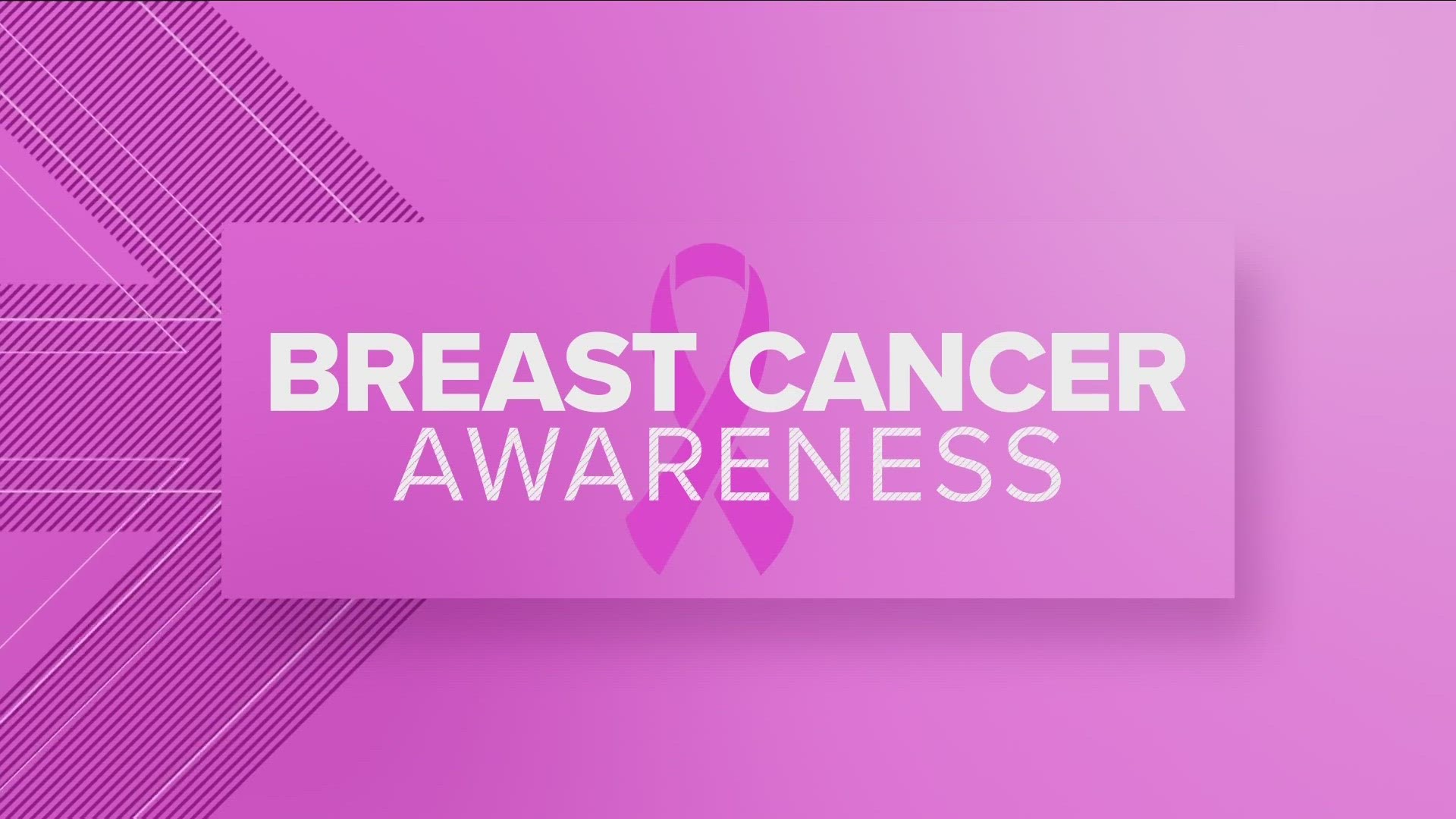BUFFALO, N.Y. — Breast cancer is something that impacts tens of thousands of women every year, and that now includes actress Olivia Munn, who recently revealed her cancer battle.
Munn shared on Instagram this week that she has been diagnosed with an aggressive form of breast cancer. The 43-year-old star said she's undergone surgeries and a double mastectomy during the past 10 months, after a mammogram last year led to the discovery.
Munn wrote that her diagnosis came after her OBGYN decided to calculate her breast cancer risk assessment score.
Dr. Jessica Young — a breast surgical oncologist and the director of the breast cancer risk assessment and prevention program at Roswell Park Comprehensive Cancer Center — stopped by Most Buffalo to discuss what women can do help raise awareness about risk assessment tools that can help women.
That includes the National Cancer Institute's Breast Cancer Risk Assessment Tool, which is an online calculator.
Risk assessment score: What is it, and how can women and their doctors use it as a tool to detect breast cancer?
Dr. Young: It's publicly available. It's called the breast cancer risk assessment tool. It's put out by the National Cancer Institute. It's actually a super-well validated score that really asks six very basic questions, and that can help you to calculate your score. It asks what your current age is, what your race is, when you first started having your periods, when you first had your first child, if you have any, whether you've had any breast biopsies before, and if they've been normal or abnormal, and then, of course, if you've had a family history of first degree relatives, so it's pretty easy to answer those questions.
Can you actually go online and calculate it yourself?
Dr. Young: Yep, and it will give you a risk of your five-year risk for breast cancer, and then your lifetime risk, which is sort of more important for us. Then it will tell you if you're higher than average or not, and if you are at a certain risk level, there are things that we can do to either help you find breast cancer sooner, like an MRI, or if there may be risks we do have some measures that we can take.
If people go online and take this risk assessment score, at what percentage should they be concerned and have a talk with their doctor?
Dr. Young: The average risk for female in this country is about 12 to 13 percent, so we generally defined being at a higher risk, probably about 20 percent or higher. Then when we're thinking about people who have gene mutations or things, those are people who are like 50 to 60 percent higher, so 20 percent or so is enough to warrant getting extra screening.
Most importantly, where can people go online and do this?
Dr. Young: Well, you can just look it up online, the Breast Cancer Risk Assessment Tool, and it's on the NCI website, although it's also called The Gail Model, you can probably find that in a few different places. If you ever have any questions or concerns, especially if you're in the Buffalo area, you can always come to Roswell. We have a program that helps women to find out what the risk is, and actually if you're normal, that can be super reassuring, and if you're at higher risk, we can help you figure things out from there.
Where can people try to connect with you and get more information and resources for you?
Dr. Young: If you just go to the Roswell Park webpage, you can just look for us there. It's really easy to get connected. Someone usually reaches back to you within a few days.
Anytime a celebrity shares their story, it really does spark all these interesting conversations, and these are important ones, right?
Dr. Young: Oh, absolutely. And I think one of the most important parts about this is that women don't have to have necessarily super strong family history. There are things that are just personal to yourself, your own risk factors that can be totally different from your sister. That puts you at different risk levels.

